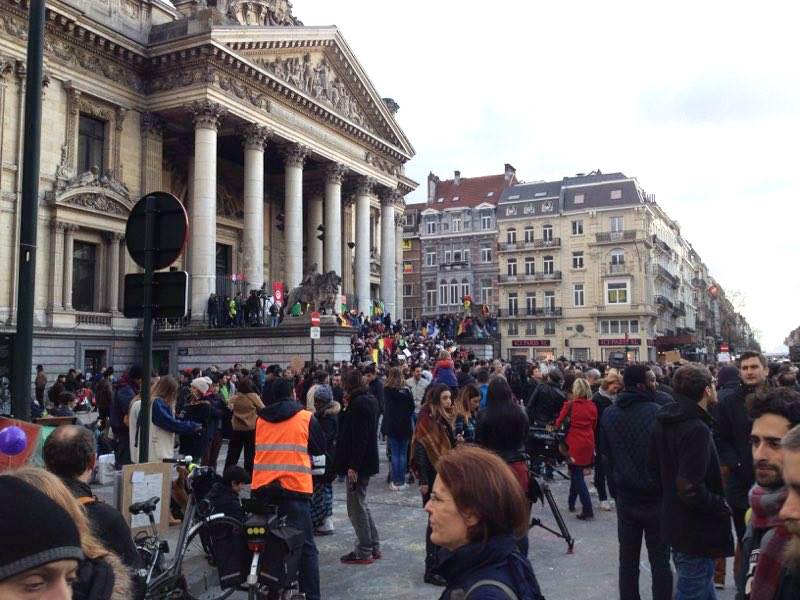The death count rose and stopped at 32, with hundreds more injured. Belgian equivalents of “Je suis Charlie” ran down social media feeds like drops of blood. On the morning of March 22, bombs exploded in the Brussels Airport and then another went off in the Maelbeek Metro station. People in Boston awoke to the headlines.
Hours after the bombing, University of Massachusetts Boston student Daniel Pavlotsky flew into Charleroi, about 50 kilometers south of Brussels, where flights were diverted after the Brussels airport shut down. Charleroi was always on Pavlotsky’s itinerary.
“The [emotional] climate is tense, but quiet. Security is at an all-time high,” he typed from an airport terminal.
He said the building was surrounded with armed military and police with automatic weapons, blocking off entrances and exits except for one. Bomb-sniffing dogs checked bags and people walking in.
Pavlotsky, a communication major, says he was headed to the airport in Prague when he heard news of the attacks. Then, his Ryanair flights to Charleroi were cancelled. There was confusion. His group wondered if Belgium’s borders were still open anymore. They tried to find a layover farther away from Brussels, but he says the U.S. Embassy was not much help.
Eventually they caught a flight to Charleroi, and after giving their report to the Mass Media, moved on to Marsielle, France. Pavlotsky is currently studying abroad in Madrid, Spain and for spring break is visiting various European countries.
Lucille Meyers is a graduate of the UMass Boston linguistics graduate program and a current lecturer of communication. She is from the Watermael Boitsfort neighborhood in Brussels. She said her family and friends were unharmed; they spent the day in their workplaces on lockdown after the attacks.
“My dad explained to me this morning that the media is blowing things up, with constant coverage and the same images are playing on TV all day. It scares people. It is very reminiscent of what happened here in Boston during the [2013] marathon, except it’s on a larger scale, and associated with a series of events with the same perpetrators.”
Meyers said a busy schedule had gotten in the way of learning details about the attack, and she needed time for emotional processing. She recommended people watch the film “La Disintegration” to learn more about how individuals are radicalized.
Emile Drijvers, 24-year-old Ph.D student at the University of Ghent, Belgium, has lived in Brussels all his life. He was on the train when the attacks took place. He said mobile networks became overloaded after the attacks, which made it hard for people to get in touch with anyone. His girlfriend managed to avoid the tight security—a queue which had some people waiting for hours.
“People are left with a lot of questions, but I am proud to say that mainly you just see a community who wants to rally in unison and speak out as one against these acts of evil,” said Drijvers.
“It’s heartwarming to see that everywhere initiatives are popping up to raise community spirit and give each other support.”





















































